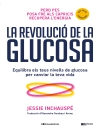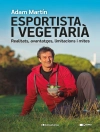In the second decade of the twenty-first century, the crusade against sugar rose to prominence as an urgent societal problem about which something needed to be done. Sugar was transformed into the common enemy in a revived ‘war on obesity’ levelled at ‘unhealthy’ foods and the people who enjoy them. Are the evils of sugar based on purely scientific fact, or are other forces at play?
Sugar rush explores the social life of sugar in its rise to infamy. The book reveals how competing understandings of the ‘problem’ of sugar are smoothed over through appeals to science and the demonization of fatness, with politics and popular culture preying on our anxieties about what we eat. Drawing on journalism, government policy, public health campaigns, self-help books, autobiographies and documentaries, the book argues that this rush to blame sugar is a phenomenon of its time, finding fertile ground in the era of austerity and its attendant inequalities.
Inviting readers to resist the comforting certainties of the attack on sugar, Sugar rush shows how this actually represents a politics of despair, entrenching rather than disrupting the inequality-riddled status quo.
Table of Content
Introduction
1 What’s wrong with sugar?
2 Hanging together
3 Hidden
4 Giving up sugar
5 Entertaining sugar
6 Taxing sugar
7 Sweetening austerity
8 The (in)visible inequalities of sugar
Conclusion
Index
About the author
Karen Throsby has been researching issues of gender, technology, bodies and health for over 20 years, including work on reproductive technologies, weight loss surgery and endurance sport. She is the author of
Immersion: Marathon Swimming, Identity and Embodiment (2016) and
When IVF Fails: Feminist, Infertility and the Negotiation of Normality (2004). She is currently Professor of Gender Studies at the University of Leeds.












